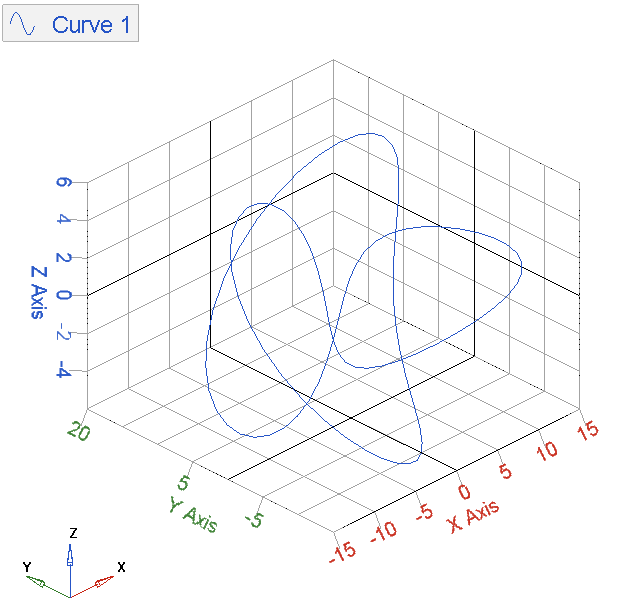plot3
Creates 3D lines in an axes and returns handles of the lines.
Syntax
h = plot3(x, y, z)
h = plot3(complex)
h = plot3(x, complex)
h = plot3(..., fmt)
h = plot3(..., property, value, ...)
h = plot3(hAxes, ...)
Inputs
- x, y, z
- Range of the x, y, and z axes.
- complex
- Complex matrix which real part is used as y data and imaginary part is used as z data
- fmt
- Formatting string for the curve. It can be any combination for the following
strings:
- line style: '-', '-.', ':', '--".
- line color: 'r', 'g', 'b', 'c', 'y', 'm', 'w', 'b'.
- marker style: 's', 'o', 'd', 'x', 'v', '^', '+', '*', '.'.
- property
- Properties that control the appearance or behavior of the graphics object.
- value
- Value of the properties.
- hAxes
- Axis handle.
Outputs
- h
- Handle of the line graphics object.
Example
Simple plot3 example:
clf;
u = [0:(pi/50):(2*pi)];
x = sin(2*u).*(10.0 + 6*cos(3*u));
y = cos(2*u).*(10.0 + 6*cos(3*u));
z = 6*sin(3*u);
plot3(x,y,z)
Figure 1. Plot3 plot
Comments
If there is no axes, one will be created first. Plot3 takes optional arguments to control the line style. It can be either a format string or property/value pair(s), or both. If a complex matrix is input the real part is used for y coordinates and the imaginary part is used for z coordinates. If x is omitted, then the index of the columns of z is used for x coordinates. If the first argument of plot() is an axes handle, lines will be created in that axes.